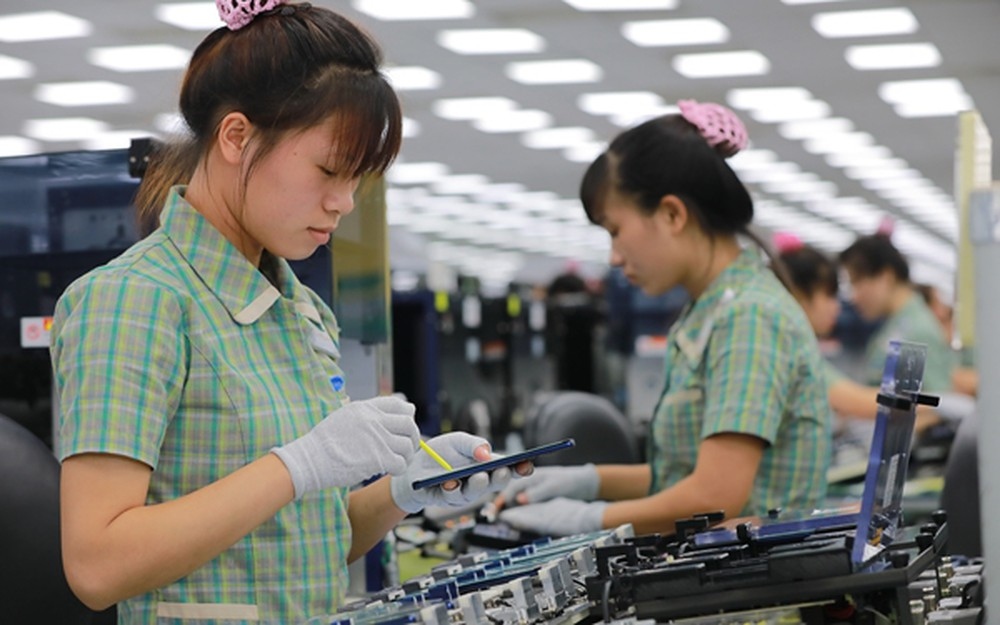Vietnam remains important production centre for global brands
VOV.VN - Despite the fourth wave of the COVID-19 pandemic having a great impact on the textile, garment, and footwear supply chain, representatives of several major brands still believe that the nation remains an important production centre for them.
This is the view held by representatives from the Vietnam Textile and Apparel Association (VITAS), the Vietnam Leather, Footwear and Handbag Association (LEFASO), and the Public Private Partnership (PPP) group.
With obvious advantages such as a pool of young and qualified workers, its strategic location, convenient transportation to both the United States and the EU, businesses still continue to do business in the Vietnamese market, despite being affected by the fourth pandemic wave.
However, due to social distancing measures being taken in many localities nationwide during the pandemic, many companies have been forced to diversify their supply chains, said the general director of Li&Fung ASEAN, which runs more than 300 factories in the country.
A representative from a US firm with more than 100 suppliers in the nation shared, "Vietnam remains our number one supplier and that has not changed. But the recent social distancing shows the risk of being too dependent on one country, whether we move orders or not depends on whether Vietnam can reopen quickly or not."
Recently, Lefaso has rejected rumours regarding Nike potentially moving production out of the country.
This comes after rumours spread on social media about Nike moving production out of the nation to China and Indonesia proved to be incorrect, stated Phan Thi Thanh Xuan, vice chairwoman and general secretary of the Vietnam Leather and Footwear Association (Lefaso).
Xuan went on to state that 88 out of Nike's 112 factories in the country are located in the southeast region, which produce many best-selling Nike-branded sneaker products.
She said complicated developments relating to COVID-19 locally impacted the production activities of enterprises in the garment-textile and footwear industries, with Nike forced to move a number of orders to other countries. However, there is no possibility of Nike moving production outside of the Vietnamese market, she affirmed.
Despite representatives from several big brands insisting on attaching importance to the Vietnamese market, if production is not restored again in the near future, there is a high risk that some foreign firms will move urgent orders within the next five months to ensure their supply chains. This will may only be a temporary shift however, not a long-term one, in order to meet the large shopping demand at the end of the year in both Europe and the US.
According to Xuan, the conditions for opening production moving into the new situation remain complicated, especially when moving workers from one locality to another as businesses are also exhausted financially.
Therefore, facing strict regulations regarding opening up, some businesses accept the need to resume production activities and then pay fines later, because if they continue to close they face the possibility of going bankrupt.
While a number of foreign companies have moved part of their production or orders to other countries, many still see the nation as a good location for investment in the long term.
Speaking during a virtual conference called ‘Invest in Vietnam. Wins and challenges’ organised by Adamed and Davipharm last week, Nguyen Hai Minh, partner at Mazars and Vice Chairman of EuroCham, said, “In Vietnam, FDI plays an important role, contributing a lot to the growth of the country, especially exports.”
“There has been a slowdown in foreign investment in the country this year due to COVID-19, with some people being concerned that foreign investors would not move forward with their investments or even move out of the country,” he said.
“So Eurocham did a survey in August. It showed that 18 percent of surveyed companies have already shifted part of their production to other countries and another 16 percent are still considering.
“But we need to be very specific here to have a correct understanding of the situation. Companies actually are not moving factories or investment out of Vietnam, but just part of their production and orders.
Michal Wieczorek, CEO of Davipharm, said he saw a great opportunity in Vietnam’s pharmaceutical market.
Whilst domestically-produced drugs only met 47% of demand, healthcare spending was expected to continue to grow, due to an ageing population with an increase in non-communicable diseases, with there being growth in the private hospital sector, he said.
The nation’s pharmaceutical market would likely remain as one of the fastest growing in the world, Wieczirek noted.
When Adamed bought 70% of shares in Davipharm in 2017 to become the biggest direct Polish investor in the nation, it had a crystal-clear strategy, he said.
Despite challenges caused by the pandemic, the company succeeded in achieving the EU-GMP certification for the drug manufacturing line in its factory in Binh Duong.
“With this EU-GMP certification, we are ready to achieve our other ambitious goals,” he said.
Jean-Jacques Bouflet, former head of Trade Affairs in the EU Delegation to Vietnam, said since last year foreign businesses had experienced many regulatory challenges.
Today, faced with the reality of the pandemic, the country should also find a solution to live with COVID-19 since having workers live on-site has proved to be very difficult for companies to implement, he said.
“The global COVID situation has proved that it is possible to combine both health protection and economic activities. This is what we need in Vietnam today: running an economy with welcoming institutional regulations for foreign investors, especially the pharmaceutical industry, which is so critical for protecting health,”
Wieczorek said. Adding, “If the Government creates an attractive and welcoming investment environment for the pharmaceutical industry, I’m convinced that many more companies will follow in our footsteps.”
“But we need incentives, not obstacles. Unquestionably, Vietnam is going to stay on the list of top priorities for Adamed this year and in future,” he explained.

